- Home
- Lloyd Jones
Biografi
Biografi Read online
Biografi
Lloyd Jones was born in New Zealand in 1955. His best-known works include Mister Pip, winner of the Commonwealth Writers’ Prize and shortlisted for the Man Booker Prize, The Book of Fame, winner of numerous literary awards, Here at the End of the World We Learn to Dance, Choo Woo and Paint Your Wife.
Biografi
LLOYD JONES
TEXT PUBLISHING MELBOURNE AUSTRALIA
The paper in this book is manufactured only from wood grown in sustainable regrowth forests.
The Text Publishing Company
Swann House
22 William St
Melbourne Victoria 3000
Australia
www.textpublishing.com.au
Copyright © Lloyd Jones 1993
All rights reserved. Without limiting the rights under copyright above, no part of this publication shall be reproduced, stored in or introduced into a retrieval system, or transmitted in any form or by any means (electronic, mechanical, photocopying, recording or otherwise), without the prior permission of both the copyright owner and the publisher of this book.
First published in Great Britain by Andre Deutsch Limited, 1993
This edition published by The Text Publishing Company, 2008
Design by Susan Miller
Typeset by J&M Typesetters
Printed and bound in Australia by Griffin Press
National Library of Australia Cataloguing-in-Publication data:
Jones, Lloyd, 1955-
Biografi/ Lloyd Jones.
ISBN: 9781921351778 (pbk.)
Albania--History--1944-1990.
914.96504
Contents
1
2
3
4
5
6
7
8
9
10
11
12
13
14
15
16
17
18
19
20
21
22
23
24
25
26
27
28
29
30
31
32
33
34
35
36
37
38
39
40
41
42
43
44
45
46
47
48
49
50
51
52
53
54
AFTERWORD
ACKNOWLEDGMENTS
I
I WAS LOOKING for Petar Shapallo but the face that had been Petar Shapallo’s had vanished under a surgeon’s knife. So I was left with the name which few people remembered, and a face fewer still had seen.
The shoemaker in Rruga November 17, for instance, said, ‘Yes, I know this man. We were at school together.’
And after that?
The man shrugged. ‘You asked if I knew him.’
He thought some more.
‘Petar,’ he said, ‘was very good at gymnastics.’
Kindly and well disposed towards his mother, the shoemaker added.
‘He was a dentist,’ I said.
‘I did not say that,’ said the man.
‘I know. I’m saying it. The Petar Shapallo we are looking for was a dentist.’
‘If he was a dentist, then go to the dentists’ union. As you can see, I am a shoemaker.’
The dentist had had the misfortune to have been born in the very same month as the Balkan dictator, Enver Hoxha.
A shared birthday wasn’t necessary—but one can see how it might have helped in making the dentist a persuasive candidate. The moon entering the third phase, the alignment of the planets…that sort of thing. More important was the fact of Shapallo’s size. He was over six feet tall, and broad across the shoulder. The dentist and the dictator had perfect matching shadows. And twin smiles designed to reassure. I had heard it said: People who saw a smile cross Enver’s face were often surprised to learn that he was ordering their execution. But just as misleading was Shapallo’s smile—that grin of a man caught in the rain without a coat or umbrella the moment he learned he was required to perform a special duty at the highest level.
Height, breadth and smiling lines—these are the vital ingredients. The rest the surgeon sculpted. Hairdressers and tailors worked on Shapallo to improve the resemblance. The dictator occasionally looked in on the work-in-progress. His glance moved between Shapallo and his own reflection in a hand-held mirror. Once satisfied that the reflection could not be improved, he had Shapallo’s family killed—his wife and two daughters, ages eight and ten. Next to go were the surgeon, hairdressers and tailors. They were in the bus that toppled over the cliffs which spill down to Dhermi on the Adriatic Coast.
The years passed. Shapallo, as it happened, was spared the assassin’s bullet and the dictator died in the mid-eighties, disabled by Parkinson’s, a frail shadow of the comparatively robust Shapallo filling in for him on the podium. There was a ceremony for retired border guards at which Shapallo pinned medals to the chests of the veterans at the very same moment that the dictator lay on his deathbed. The death notice arrived several days later. The announcer’s voice on Radio Tirana was solemn and grave. The grieving process thus began.
To commemorate the loss of the Great Leader an extra ‘attack day’ was declared in the countryside. In Tirana people lined up to give parting kisses. They wept and threw themselves over the coffin. A woman screamed for her heart to be torn open and for Enver to be fed with her blood. This ‘correct’ display of emotion was shown many times on Albanian television. Each time, a soldier with a rifle slung over his shoulder prises the woman from the coffin. The woman is led to a chair, and the line of mourners takes a step forward. On it went—until the day of entombment arrived with the rumoured sighting of the Great Leader; like the ‘Christ figure’, Enver had risen from the dead.
The sightings spread out from Tirana to the countryside, along the coast: Vlorë, Himore, Borsh, Sarandë. Eyewitness reports spoke of a man with ‘film-star looks’. It was quiet for a spell; then a woman in Korcë recalled that, before she fainted, a man exactly like the Great Leader had tapped her on the shoulder and asked for water. This man, she said, had been exceptionally polite.
There were several more mountain sightings—the last one in a small village tucked at the bottom of the Coraun range, which is the peaked hat on the Karaburun peninsula separating the muddy Adriatic from the Ionian Sea.
The last sighting, and one that lent credence to all the others, had come from a German embassy official in the aftermath of the rush on the foreign embassies in Tirana. In June 1990 the regime casually announced that passports could as of now be obtained from the Ministry, the extraordinary implication being that everyone was now free to travel. The controls along Embassy Row were relaxed. At first no one wished to appear too eager. Second or third in line was okay, but to head a line was risky. Along Embassy Row people began to gather. For the time being everything was orderly. But then the rumour spread beyond Tirana that the embassies were taking people in, and the dribs and drabs grew to a torrent of new arrivals. All through the night and the following day the crowd built. People arrived by train, by bus, by cart; they walked in from outlying villages. They were a crowd now and as such a powerful new voice emerged. Graffiti appeared on the stone walls comparing Hoxha with Hitler. Outside the embassies the crowd chanted the new words: ‘Freedom. Democracy’. The police fired shots in the air. They tried to shout the crowds down with the use o
f megaphones.
It was during the second night that Shapallo managed to climb over the iron fence into the grounds of the German embassy. A good number of fellow travellers were already huddled under blankets and Shapallo was able to wriggle down in a bed of gravel.
He came to at first light with a boot in his ribs. Then something hard—a fist or paling—struck his forehead. A woman screamed in his face: ‘Murderer!’ He was barely awake to the fact that he was being kicked, shoved and punched back to the iron railing. Word passed among the crowds camped along Embassy Row that the ghost of the late dictator had come back to haunt and burden with guilt those seeking to leave. There was a terrible commotion. Soldiers fired shots in the air to try to break up the crowd. Shapallo was pinned to the fence inside, and those on the outside waiting to get into the embassy reached through the fence to rip his clothing. It was left to embassy officials to haul the concussed dentist to safety inside the building. A doctor was sent for—and an earlobe was sewn back on and several cuts stitched above Shapallo’s right eye. Two ribs had been broken and a plug of hair ripped out from his left temple.
2
THE STORY SHAPALLO told Gert Munz, the consulate chargé d’affaires, resulted in a few paragraphs published in the West. It told of a dentist with memories as Petar Shapallo being obliged to travel behind darkened windows, to present himself on balconies to the cheering masses on May Day; and once, when the leader dreamed of an airplane crash, the dentist had been obliged to take the leader’s place on a helicopter flight from Vlorë to the then Russian naval base nearby.
Shapallo had been given new shoes, new clothes, books. He was told to favour his left leg when walking. In the event of an unscheduled encounter with the public he was told to reminisce about his childhood. He should begin by staring off into the distance and recite, ‘When I was a boy…’
Shapallo was the perfect shadow. He lost weight when the Great Leader dieted; together their hairlines receded, and when the Great Leader sprained an ankle, Shapallo limped. On film, Shapallo is the slow-moving shadow turning to wave to the crowd; there, he pauses from his stride to take a bouquet of flowers from a small girl. Here, he strikes a serious pose. He tilts back his chin and clasps his hands behind his back: but, on film, is he thinking as an emperor or as a dentist?
That first night in the embassy the concussed dentist awakes in darkness. He sits up in bed and wonders where he is—what are these mattresses made of? His hands touch his chin, his eyes, his cheeks—but inevitably locate the profile of the late and disgraced leader.
A staff member found him the next day, draped over the bathtub, the mirror and bathroom walls splattered with blood and, in the handbasin, the knife which Shapallo had taken to the Emperor’s face.
Shapallo has lost the tip of his nose. Down the centre of his forehead he has made a deep cut. It was Munz’s impression that the dentist had tried to peel back the skin. Twice Shapallo had plunged the knife deep into the cheekbone beneath his left eye but he’d lost consciousness before the tip of the knife was able to locate the eye socket.
In Tirana the Party leaders are dismayed. They shake their heads, like disappointed parents. They speak out against this senseless vandalising of life and property. In soft voices they say, ‘Look at this. And that. Over there…Why?’
The buses have been set on fire. The windows in the buses and trains are smashed. The huge greenhouses in the countryside lie in tatters. Shattered glass gathers in the schoolyards.
At the city zoo the tracks of a children’s train wind in and out of the charred remains of animals spit-roasted over open fires. Behind locked bars the lions have shrivelled up under mounds of skin and fur, hunger’s sleep. Vagrants have succeeded, though, in forcing their way inside the monkey cages, and chimp bones lie in small blackened piles in the chestnut groves of the zoo park.
The bird cages are also empty. And the two big soft eyes gazing up from a pile of chestnut leaves belong to the bony head of a seal. The animal has been dragged a couple of hundred metres from its rockery and filleted. The last surviving animal in the zoo is a languorous rhino. I watch the zookeeper feed it hay on the end of a pitchfork. He looks up, aware suddenly that he has company. The zookeeper sees me and draws a finger across his throat.
3
ON MY SECOND day in Tirana a young medical student shows me where the statue of Stalin had stood. The key, he says, to blowing up a statue is knowledge of anatomy. Earnestly he explains how two tonnes of gelignite placed by the tyrant’s feet will blow off the toes, but this, of course, amounts to no more than a glancing blow. In the fold of the dictator’s arm a stick of gelignite will blow an arm sky-high—a crowd-pleaser for sure. But for the ultimate result a stick of gelignite must be placed in a hole drilled over the heart.
‘Over the heart. You understand?’ And he jabs a finger in my chest—so that I may better understand.
The medical student had been amazed to discover that the Emperor’s statue in downtown Tirana had been hollow and badly welded.
But none of these student interpreters has shown much heart for tracking down Shapallo. They stick to the Tirana they know. And, understandably, their preoccupation is with other things.
It is November and unseasonably cold. Each morning the city awakes to ice on the pavements and the small fires of the gypsy street cleaners. People talk of the approaching winter. It is like a medieval fear of what lies in the lee of the mountain. Old men sit around in cafés that have no food to offer. They smoke their last cigarettes, and long after the silty coffee has hardened to a rind in their cups they joke amongst themselves as to who will still be around by the end of winter.
This Shapallo, they ask, has he been working in Greece? Has he brought back supplies? Has he some good raki from Kosovo to sell? Does he know where we can find some cheap fuel? Why, they ask, should they know this man-lizard? This chameleon? Or else they ask again, who is it exactly I am looking for, a dentist or an emperor?
We have had enough of emperors, they say. It’s dentists we need, and the undeniable truth of this is there to be seen in the few cracked teeth straggling to the bitten corners of their mouths.
At such moments I can feel the willingness of my student interpreters crumble beside me.
One such experience. After the guffawing subsides, an old man follows me out of the café behind the Tirana Hotel and takes hold of my coat sleeve. He begins to tell me something, and I redirect him to the interpreter, who is very excited: ‘This man here, he has heard of this person, Shapallo.’ This is too good to be true. But there’s the man’s whiskery grin. There he is, nodding, full of assurances. ‘Shapallo,’ he says. Then off he goes—explaining something at great speed. ‘Yes,’ says the interpreter slowly. ‘There is such a person who can assist with information. A shoemaker.’
Some years earlier, I first came upon ‘Bird the First, King of the Sons of the Eagle’ buried away in the Talk of the Town section of the New Yorker. Ahmed Bey Zogu was born in 1895. In 1925 he became President of Albania, and three years later was proclaimed King Zog. For his coronation he ordered an outfit which included rose-coloured breeches, gold spurs and a gold crown weighing in at nearly eight pounds.
But not even the most expensive refinery succeeded in convincing all of his legitimacy, and for the duration of his reign King Zog’s preoccupation was ‘staying alive’. In all, he survived fifty-five assassination attempts. The first one came in 1931: a burst of gunfire greeted Zog as he left a Vienna opera house after a performance of Pagliacci. Although one particular assassination attempt did much to turn him into a national hero, when, as President, he was wounded three times outside the Parliament in Tirana. Without thought to his injuries Zog calmly walked back inside to the Parliamentary Chamber and, ignoring his bleeding, gave one of the ‘most brilliant speeches of his career [and] the longest’.
A king, of course, requires a queen. It is one of life’s symmetries. Like salt and pepper. So Zog commissioned his four sisters, each princess a divisi
on commander in the Albanian Army (and none married themselves), to find a suitable spouse.
A single photograph of a penniless half-American, half-Hungarian countess, Geraldine Apponyi, who had been selling postcards in the Budapest National Museum for forty-five dollars a month, captured the King’s heart.
One year after the marriage, Italy invaded Albania. The royal household fled to England as first Mussolini’s Fascists, followed by the Germans, and in 1944 Enver Hoxha’s Communists, took over the kingdom—formally deposing the King in absentia in 1946.
King Zog wasted no time in setting about the royal circuit. He was a friend of King Farouk. In Alexandria the Albanian King and Queen danced in the gardens of Farouk’s summer palace. There were bridge and tennis parties to attend with other royal exiles.
In 1951 the King toured the United States and bought Knoll-wood, a grand Long Island residence. Italian Renaissance in style, it boasted several kingly attributes—tall Ionic columns and a winding stairway of marble. For the duration of Zog’s residence a bearded Royal Guard was stationed at the gate—he would kiss the hands of visitors and gently turn sightseers away.
In 1952 the King was unable to convince the Nassau County authorities that as a monarch he had ‘sovereign immunity’ from such trifles as paying taxes.
Three years later he sold Knollwood. Its grounds were ripped up by vandals in search of the gold Zog was rumoured to have escaped Albania with, and buried in the gardens of Knollwood. The mansion was later demolished. In the late sixties Nassau County acquired Knollwood and incorporated it into a wilderness reserve.
King Zog spent his last years drifting in and out of pain caused by his illness and dreaming of his restoration to the throne. He died in 1961 in Foches Hospital, Paris, broken in body and spirit. But not forgotten.
In 1990, a man living with an Australian wife in a ranch-style home outside Johannesburg issued a press release saying that he was Leka I, son of ‘Bird the First, King of the Sons of the Eagle’, and that he was ready and willing to assume the throne of Albania.

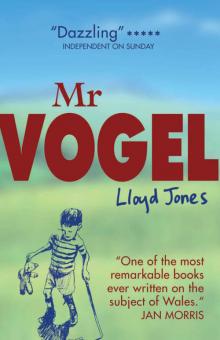 Mr Vogel
Mr Vogel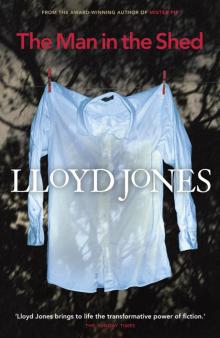 The Man in the Shed
The Man in the Shed Mister Pip
Mister Pip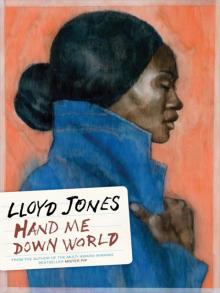 Hand Me Down World
Hand Me Down World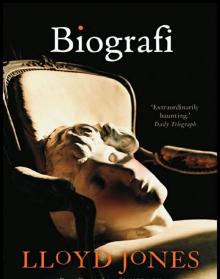 Biografi
Biografi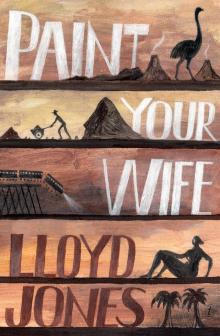 Paint Your Wife
Paint Your Wife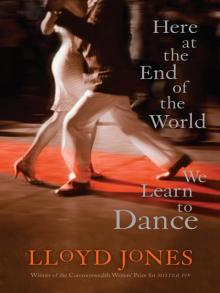 Here at the End of the World We Learn to Dance
Here at the End of the World We Learn to Dance My First Colouring Book
My First Colouring Book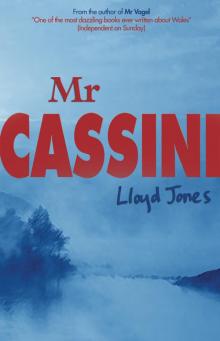 Mr Cassini
Mr Cassini See How They Run
See How They Run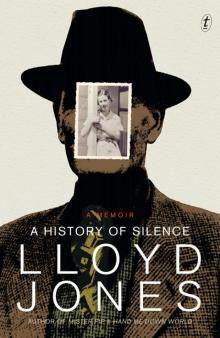 A History of Silence
A History of Silence The Book of Fame
The Book of Fame